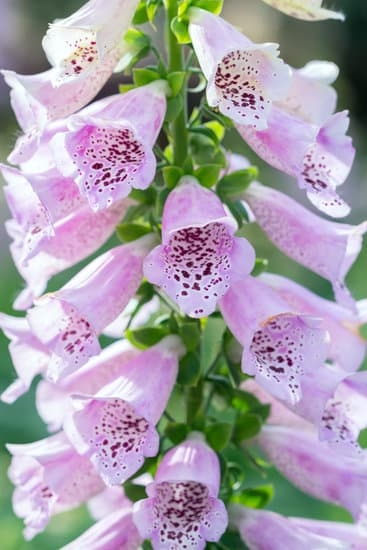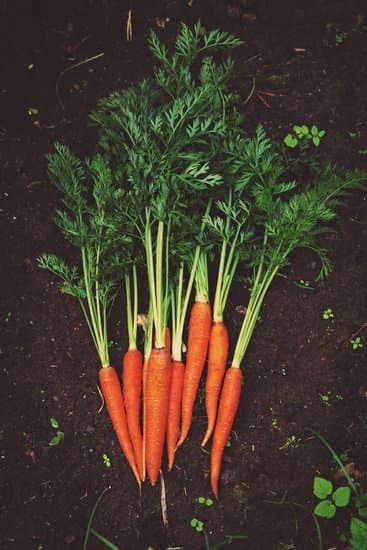Introduction
Gardening jokes often have a great sense of humor to them. They tap into the unique moments and situations that most gardeners can relate to and often poke fun at the unpredictable nature of planting, sowing, nurturing, and harvesting in the garden. Whether it’s dealing with a pesky snail or trying to cover up an overgrowth of weeds, gardening can be both challenging and amusing at times. From tongue-in-cheek puns to outright comical one liners, there is likely to be something for everyone’s funny bone in gardening jokes.
One of the more popular types of gardening jokes are those that take pot shots at traditional farming methods. With phrases like ‘hoe da dirt’ and ‘diggin’ while they’re sleepin,’ anyone who has spent time gardening will know what situation is being referred to – even if it requires some creative interpretation! Some of these farming-focused jokes also provide an opportunity for comedians to create a moral lesson about taking care of the environment by encouraging sustainable farming practices.
Of course, gardening humor doesn’t just come from witty one liners about farming techniques or environmental messages – there are plenty of lighthearted takes on everyday activities too. Plant puns add even more lightness to otherwise serious discussions about tending plants and flowers, from pointing out how ‘thirsty’ some plants get after a certain amount of days without water, rather than saying they need hydration; or referring to pruning shears as ‘steak knives.’
Humour is certainly not hard to find when looking for jokes related to tending plants and gardens – so why not explore your own green thumbed comedy routine today?
The Origins of Gardening Jokes
Gardening jokes have been around for centuries, with some of the oldest examples being found in medieval manuscripts from the 10th and 11th centuries. These early jokes focused primarily on gardening as a metaphor for life, or used it to make light of seemingly impossible tasks. Over the years, these jokes evolved and took on different aspects, turning into puns or silly quips about garden scenes. The 16th and 17th centuries saw a rise in the popularity of gardening jokes, with scholars often using them to add some levity to their works.
In the 18th century, gardening humor was further diffused by public gardens and television programming such as BBC’s Gardener’s World showing gardeners in action. Popularizing benign activities associated with gardening became a badge of honor amongst those who identified with its symbolic representation of life processes—planting seeds from which new growth could thrive—and especially among women who constituted an emerging demographic in this realm of literature. By the early 20th century books about gardens started becoming available to readers and experiments conducted on farms were gaining widespread awareness. As these topics spread out into popular culture, so did the kinds of jokes about gardeners that had been passed down through time coming up more frequently as one-liners or quips provided during televised interviews on horticulture-related topics. And soon enough we are able to find a range of these humorous expressions transcending language barriers making them relatable universally.
Changing Times, Changing Jokes
In the past, gardening jokes have primarily been dominated by puns and double-entendres, providing some lightheartedness at their expense. In recent years, however, joke content has shifted to include more of a narrative element. No longer are the majority of jokes simply an excuse for a punchline; rather, the story matters too. They often include humorous observations about being a gardener in the modern age and may even tackle larger environmental themes. Modern gardening jokes may involve using more advanced technology or making funny comments on artificial intelligence and automatization of tasks as it applies to green spaces. Although many of these jokes still rely upon wordplay and sometimes risque humor, they come across as less cheap than their predecessors and often have an underlying statement that speaks to our changing relationship with nature in the digital age.
Types of Gardening Jokes
Gardening jokes often make light of the arduous task of gardening and reflect on popular stereotypes about gardeners. Some common types of gardening jokes include puns about plants and gardening-related activities, such as planting or watering. For example, someone might refer a plant as a ‘purple-flower preacher’— implying that the flower is so holy it must spread its gospel in all directions. Other popular types of garden jokes involve wordplay and double entendres, like “Why are plants so spoiled? Because they are potted!” Another class of gardening humor involves making fun of gardeners and their penchant for having green thumbs. One joke might go something like: “What do you call a gardener with an ear infection? A hoe sick operator!” Regardless of which type of joke you prefer, all good gardeners know that the key to success is cultivating an appreciation for absurdity and playfulness..
Examples of Gardening Jokes
Q: What did the carrot say to the tomato?
A: Quit following me around, I’m not into salad!
This joke is clever because it plays on how carrots and tomatoes are often included in salads together, and highlights how one wouldn’t like being followed around by another. It emphasizes the need for some personal space when not wanting to be part of a larger group or thing. This joke has a simple setup with a witty punchline that delivers the humor quickly, making it an effective gag.
Q: How do you know if there’s a gardener nearby?
A: You can smell the freshly-cut grass!
This joke takes advantage of a common association—the smell of freshly cut grass being associated with an active gardener in the area. It also comments on how powerful scent can be, evoking memories and images within us right away upon smelling something familiar. The lightheartedness of this joke adds to its enjoyment, while its quick delivery time allows it to be effectively used without getting drawn out into a long story.
Gardening Jokes in Popular Culture
Gardening jokes have been a popular source of lighthearted entertainment throughout history, particularly in the context of comedy. Over the years, many celebrated comedians, entertainers, authors and other public figures have used gardening jokes to make their audiences laugh. For instance, British television presenter and comedian Stephen Fry included several gardening-related puns in his book The Liar and its subsequent film adaptation. In addition, renowned American stand-up comic Steve Martin wrote an entire song about gardening titled “Pretty Flowers Garden” for his comedy album Let’s Get Small in 1977. Gardening jokes are also a recurring trope within literature; multiple characters from J.K Rowling’s beloved Harry Potter series can be seen cracking horticultural-related quips during the course of the story. Moreover, composer Johann Sebastian Bach featured several musical interludes containing humorous gardening references throughout his canon of works. Clearly then, from TV shows to books to music—gardening jokes have been a pervasive presence in popular culture for centuries!
Gardening Joke Social Commentary
Gardening jokes have been around for decades, mostly introduced as light-hearted banter between gardeners and non-gardeners alike. As the popularity of hobbies like gardening continue to rise in modern society, many people have begun to recognize gardening jokes as an effective form of social commentary. These jokes often poke fun at certain trends or issues in society, ranging from environmental sustainability to food insecurity.
When examining the use of gardening jokes as a form of social commentary, it’s important to consider not only what is being mocked but also why it is being mocked. A joke about unsustainable farming practices isn’t just meant to be funny, it’s also a critique on the lack of accountability surrounding that issue as well as an expression of frustration at the systemic negligence of environmental justice movements. Similarly, a joke about food insecurity could highlight how little progress has been made in addressing poverty and provide critics with an alternate way to view economic inequality in society. Even though these themes may seem heavy-handed, they can act as catalysts for meaningful conversations about serious topics while still maintaining a humorous tone.
In conclusion, humorous gardening jokes can be used as powerful tools to explore and analyze various social issues affecting our world today. By combining elements of satire and irony with insightful commentary, these jokes can be used to bring attention to issues such as environmental injustice and economic disparities. Ultimately, using humor to discuss complex topics is not only entertaining but can also help make difficult conversations easier and more accessible for everyone involved.
Conclusion
Gardening jokes have been around for centuries and have evolved over time. They have provided people with a reminder that the joy of gardening can make them smile, whether it is growing something beautiful or struggling to keep everything alive. These jokes continue to be popular today as they provide a source of fun and light-heartedness in a world that sometimes seems too serious. Gardening jokes remind us all of the beauty and wonder that lies in every garden and also offer us laughing respites from our everyday lives.

Welcome to my gardening blog! I am passionate about plants and enjoy sharing my knowledge and experiences with others. In this blog, I will write about everything related to gardening, from tips on how to get started to updates on my own garden projects.





